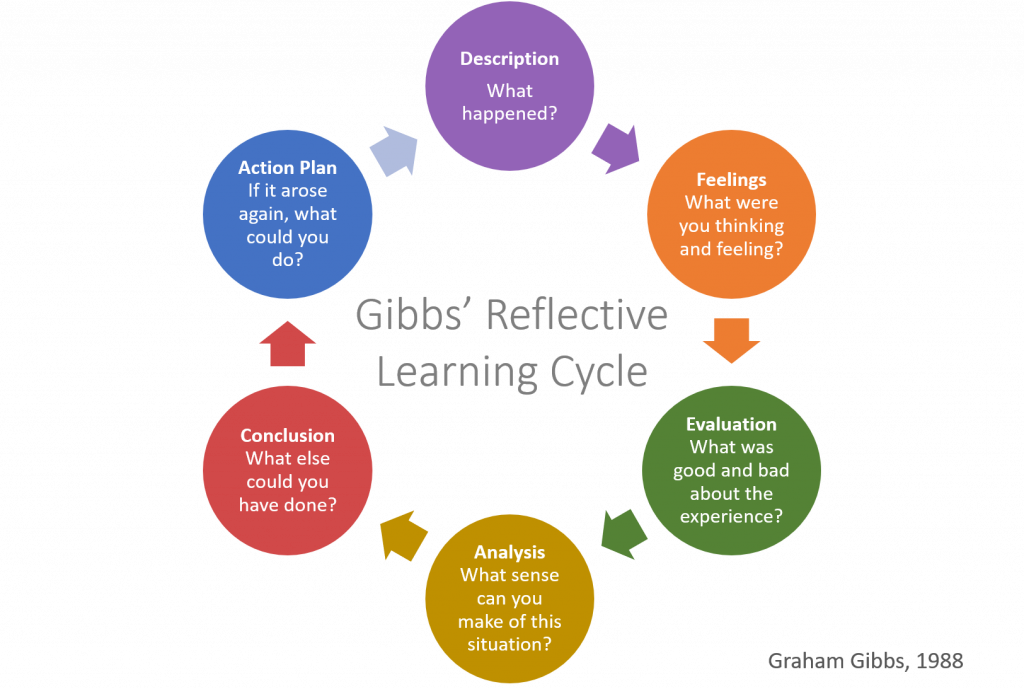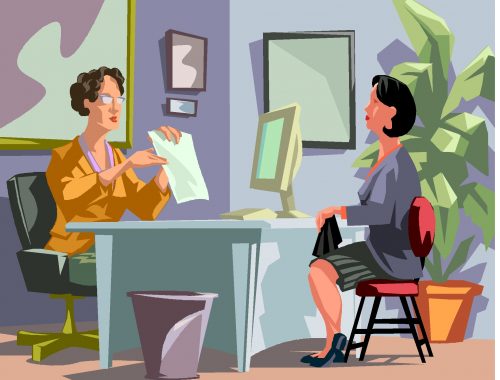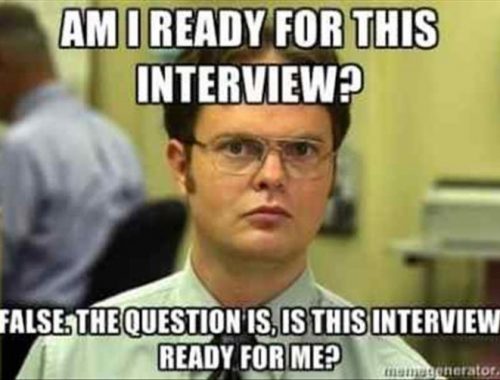Preparing for an Interview with Little Experience.
My looming graduation has sparked a spell of anxiety regarding my employable skills. On surveying job opportunities, I have identified gaps in my skillset which I plan to develop through voluntary work and freelancing. The job I chose to mock interview for is an editing role for media-marketing agency, ‘Life-Like Media’. I chose this job for the description’s emphasis on self-motivated leaning, which I believe is a key strength of mine. Although I lack some desirable technical skills, I found this exercise to be great opportunity to demonstrate my enthusiasm and willingness to learn despite having limited experience. I am aware that experience is always a constraint in early careers, so after graduation it is essential to present myself as a fast learner with ambitious goals to offset this negative. I will use Gibbs’ Reflective Model (1988) (Fig.1) to critically evaluate my experience and how I can learn from it.

I have recognised a growing demand in portfolio-based applications for marketing agencies, so I am grateful to have spent time developing my client showreel during my degree. I was able to refer to this experience in my answers as relevant examples of editing situations, while also demonstrating commercial awareness by working with similar clients the employer deals with. I was asked a variety of autobiographical, competency-based, and strength-based questions. Most questions were competency-based, which posed a challenge as my commercial editing and technical experience is limited. One question addressed premiere pro and aftereffects. Having read the job description, I told the panel I was aware of the importance of software knowledge, and that although I am unfamiliar with aftereffects, they can be assured that I am a fast learner and can adapt to the company’s established workflow. Throughout the interview, I aimed to frame weaknesses as areas of active improvement.
The simulated process was useful in that it created a realistic interview environment, with relevant questions based on the job description. I don’t recall being too nervous, as I was confident my freelancing experience and time at Queen’s have developed relevant skills, and I had many anecdotes prepared that demonstrate my suitability as an editor. I remained very aware throughout the interview that I was not truly being judged, which calmed my nerves and allowed me to feel less defensive than I usually do in interviews. The only resistance I felt was the fear of embarrassing myself in front of my peers. But this worry was mitigated by the thought that the panel were most likely thinking about their upcoming interviews, so I never felt scrutinised. I have found in my experience that I am tense when I feel judgement from others. Because the interviews were not assessed and everyone played both employer and candidate roles, there was no fear of judgement. I conducted myself differently and was surprised by how enjoyable interviews can be without fear.
The peer review exercise was very useful. On retrospect, I am pleased with how I performed. While I was nervous that my lack of in-house editing experience would be a problem, the panel were impressed by how I connected my client experiences and short films to the skill requirements. Presentation is crucial in interviews. An interesting negative point (which I also noticed) was a tendency to repeat points unnecessarily. Since the event, I have considered what causes this, as I have noticed the trend not just in interviews, but in presentations, calls with clients, and conversations. Following a formula can be very helpful in structuring answers. When answering competency-based questions, I didn’t consciously use the STAR technique (Fig.2), although I had prepared to. This freestyling led to generic responses and repetition.

I have identified my biggest interview weakness to be verbal presentation. As a panellist, I was most impressed by my peers when their answers appeared thought-out and well-structured. It conveyed charisma and intelligence, which can be greatly redeeming when there are gaps in experience. I know that as a graduate with little work experience, my greatest asset will be my character. During the interview, I was honest about my weaknesses and determined to find the positives to seem optimistic. When asked what I knew about the company’s software, I took a moment to gather my thoughts as this was a difficult question to answer. I believe most hiring managers would rather take on somebody who is positive and enthusiastic with low experience, than the reverse. Just because someone has experience doesn’t mean they will be a good fit for the team. I have learned that in situations like these it is best to address weaknesses as selling points. In response to the aftereffects question, I may have said that although I have no experience, it means I am a blank canvas and carry no bad habits, and they can train me up to follow their workflow perfectly.
If you’ve been invited for interview, chances are that the interviewer is seeking affirmation of predicted weaknesses, not information about new ones
Reed (2017, 52)
This experience has demonstrated the value of a genuine positive mindset. The conditions of the interview were such that I felt little anxiety, showing to me that with a little confidence, the sense of enthusiasm and willingness to learn from an inexperienced candidate can go a long way in the hiring process. Without fear of judgement, I was enabled to be honest about my weaknesses and frame them in a positive light. I believe the panel noticed the authenticity of this mindset.
To prepare for future interviews, I will draft and answer a list of likely questions based on the job description, along with the most common interview questions such as ‘tell me about yourself’. I will implement structure, using the STAR technique for competency-based questions and practice my answers with a partner. During real interviews, I will be mindful of my verbal presentation, taking frequent moments to gather my thoughts to avoid repetitive and generic responses.
Bibliography
Boogaard, K. (2022) The STAR Method: The Secret to Acing Your Next Job Interview. [online]. Available at: https://www.themuse.com/advice/star-interview-method (Accessed 21st February 2023).
Gibbs, Graham. (1988) Learning by Doing: A Guide to Teaching and Learning Methods. Oxford: Oxford Polytechnic.
Reed, J. (2017) Why You? 101 Interview Questions You’ll Never Fear Again. Ebrary [online]. Available at: https://aghalibrary.com/storage/books/1612862071_AghaLibrary.pdf (Accessed 19th February 2023).
You May Also Like

Interview a New You! – Becoming an Interview Guru
24 February 2023
“Fake it ‘til you make it!”: Finding Success in a Simulated Interview
22 February 2023
